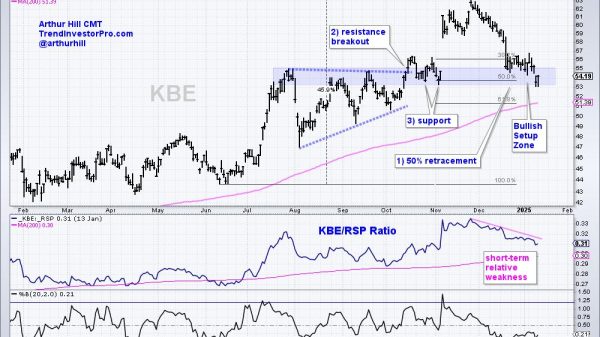
Casino companies, whether operating in brick-and-mortar venues or online platforms, are part of one of the most lucrative industries in the world. But their success is not built on luck.
Behind the flashing lights, glamorous marketing, and thrilling games lies a highly strategic and data-driven business model designed to attract, retain, and maximize revenue. In this article, we explore the key elements that power the growth of casino companies and keep the chips rolling in.
The House Edge: The Foundation of Profitability
At the core of every casino business model is the mathematical advantage built into each game — known as the house edge. This is the statistical edge that ensures the casino will, over time, make a profit on every game it offers.
For example:
- Roulette may have a house edge of 2.7% (European version).
- Blackjack can have an edge of under 1% (if played optimally).
- Slot machines vary but often have an edge of 4% to 10%.
Why It Works:
- Ensures consistent revenue over time.
- Built-in margin on every game means scalability.
- Enables predictable forecasting and long-term planning.
Player Acquisition and Bonuses
To grow their user base, especially online, casinos invest heavily in player acquisition strategies. This often includes:
- Welcome bonuses (free spins, deposit matches)
- Affiliate marketing
- Sponsorship deals and influencer partnerships
- Advertising across TV, search engines, and social media
While these upfront costs are high, casinos rely on lifetime player value (LTV) to justify the investment. The idea is that once acquired, a player will continue to spend over time, delivering strong ROI.
Why It Works:
- Attracts players through perceived value.
- Converts visitors into customers with incentives.
- Establishes brand visibility in a competitive market.
Retention and Loyalty Programs
Getting a player through the door is only half the battle. The real profitability comes from retaining players over time. Successful casinos deploy loyalty programs and VIP schemes to encourage long-term engagement.
These often include:
- Tiered reward systems
- Cashback offers
- Free spins and reload bonuses
- Personalized gifts and experiences for high-value players (e.g. trips, events)
Online platforms use CRM (Customer Relationship Management) systems to segment players and tailor offers based on behavior, spend, and preferences.
Why It Works:
- Increases player lifetime value.
- Reduces churn through constant engagement.
- Creates emotional loyalty and brand attachment.
Diversification of Product Offering
To keep players engaged and attract new demographics, casinos constantly expand their offerings. This includes:
- Slots, table games, and live dealer games
- Sports betting
- Poker rooms and tournaments
- Game show-style and crash games
- Lottery and bingo
Some casinos even develop exclusive or branded games to differentiate themselves from competitors and build proprietary appeal.
Why It Works:
- Expands audience reach.
- Prevents player fatigue by offering variety.
- Encourages cross-selling between game types.
Use of Technology and Data Analytics
Casino companies rely heavily on data analytics to drive growth. Every spin, bet, and session is tracked, analyzed, and optimized. Data is used to:
- Personalize marketing and offers
- Identify high-value players
- Detect patterns of churn and intervene early
- Manage risk and fraud
- Optimize user interface and experience (UI/UX)
Some companies are now implementing AI and machine learning to further enhance personalization and prediction accuracy.
Why It Works:
- Boosts efficiency of marketing spend.
- Improves player satisfaction and engagement.
- Maximizes revenue per user through personalization.
Responsible Gambling and Regulation
Reputable casinos invest in responsible gambling tools — not just for compliance, but as part of long-term brand trust. These tools include:
- Deposit and loss limits
- Time-outs and self-exclusion options
- Real-time behavioural tracking to flag problem patterns
Operating within legal frameworks and building consumer trust are crucial to sustainable growth, especially in tightly regulated markets like the UK, Sweden, and parts of the US.
Why It Works:
- Mitigates legal and reputational risk.
- Encourages long-term engagement by promoting healthy play.
- Builds trust with regulators and players alike.
Expansion into New Markets
As mature markets become saturated, casino companies look to grow by entering emerging jurisdictions. This includes:
- Latin America (e.g., Brazil, Argentina)
- Africa (e.g., South Africa, Nigeria)
- Parts of Asia (e.g., Philippines, India)
- U.S. states opening up to regulated online casino games
Strategic partnerships, licensing agreements, and acquisitions are common entry methods.
Why It Works:
- Taps into new revenue streams.
- Diversifies regulatory and market risk.
- Positions companies as early movers in high-growth regions.
Conclusion
The casino industry may be rooted in games of chance, but the success of casino companies is no gamble. Their business model is a meticulously crafted blend of mathematics, marketing, technology, and psychology. By leveraging data, optimizing engagement, and expanding into new territories, casinos continuously evolve to stay ahead of competition and grow their customer base.
As the industry embraces innovation—from mobile gaming to mobile payments and VR casinos—one thing remains clear: the house always wins, because the house is always learning.
Read more:
Inside the Business Model of Casino Companies: How They Keep Growing























